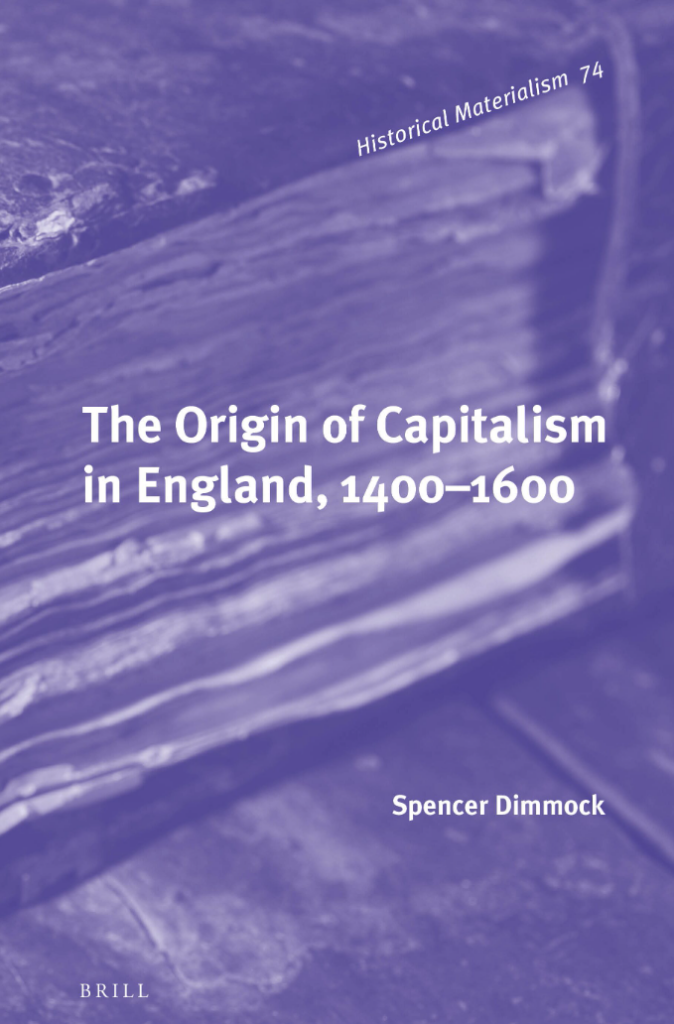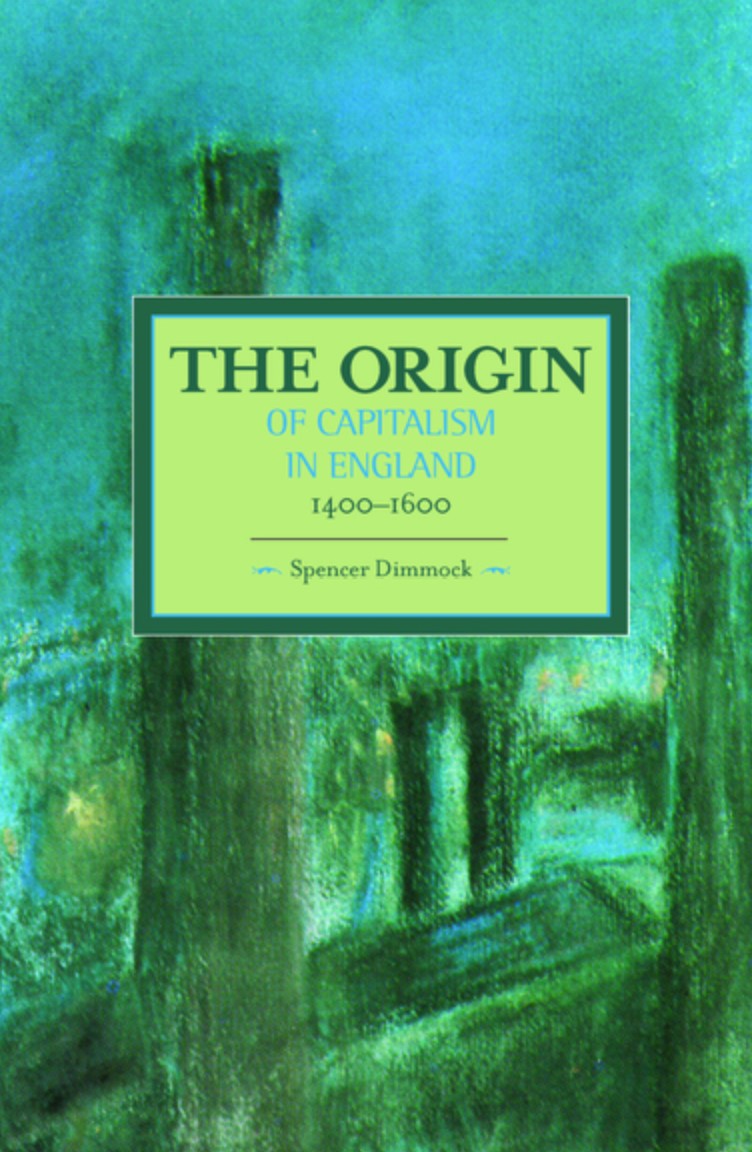Spencer Dimmock, Swansea University
Incorporating original archival research and a series of critiques of recent accounts of economic development in pre-modern England, in The Origin of Capitalism in England, 1400-1600, Spencer Dimmock has produced a challenging and multi-layered account of a historical rupture in English feudal society which led to the first sustained transition to agrarian capitalism and consequent industrial revolution.
Genuinely integrating political, social and economic themes, Spencer Dimmock views capitalism broadly as a form of society rather than narrowly as an economic system. He firmly locates its beginnings with conflicting social agencies in a closely defined historical context rather than with evolutionary and transhistorical commercial developments, and will thus stimulate a thorough reappraisal of current orthodoxies on the transition to capitalism.
Biographical note
Spencer Dimmock, Ph.D. (1999), University of Kent at Canterbury, is an Honorary Research Fellow in History at Swansea University. He has published many articles and chapter contributions on pre-modern England and Wales.
Readership
Historians, sociologists, students of early modern culture, and non-specialist readers curious about the fundamental aspects of the society in which they live.
Table of contents
Introduction
PART I: A DEFENCE OF ROBERT BRENNER
1. Robert Brenner’s Thesis on the Transition from Feudalism to Capitalism
2. The Prime Mover of Economic and Social Development
3. Feudalism, Serfdom and Extra-Economic Surplus Extraction
4. Class Conflict and the Crisis of Feudalism
5. Insecure Property and the Origin of Capitalism
6. The Rise of Capitalist Yeomen and a Capitalist Aristocracy
7. Periodising the Origin of Capitalism in England
8. Orthodox Marxism versus Political Marxism
PART II: ECONOMIC AND SOCIAL TRANSFORMATIONS IN KENT: A CASE STUDY
9. Economy and Society in Late Medieval Lydd and its Region
10. Engrossment, Enclosure and Resistance in the Fifteenth Century
11. An Emerging Capitalist Social-Property Structure
12. Engrossment, Enclosure and Resistance in the Sixteenth Century
13. Legitimising Social Transformation: The Festival of St. George
Conclusion
Appendix
References
Index


